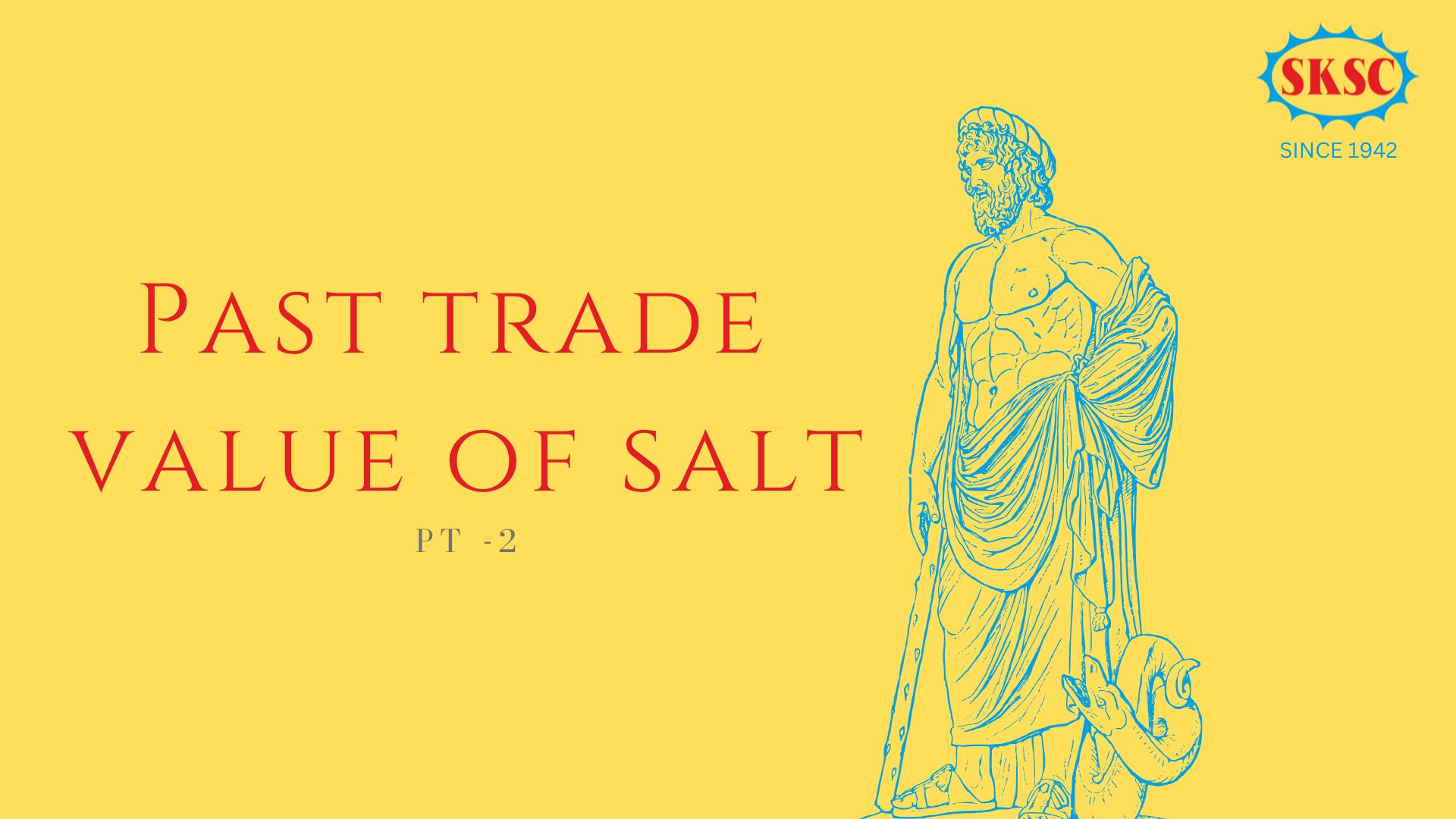
Past trade value of salt - Pt -2
In addition to being important to European exploration of North America, salt has also had a significant impact on American, Canadian, and Mexican history. While gathering sea salt on St. Maarten, the first Native Americans in the Caribbean were "discovered" by European explorers. The Portuguese and Spanish fleets used the "wet" method of salting fish onboard, while the French and English fleets used the "dry" or "shore" method of salting fish on racks onshore when the major European fishing fleets discovered the Grand Banks of Newfoundland at the end of the 15th century. French and British fishermen became the first Europeans to settle in North America since the Vikings fifty years previously as a result of this early food processing. Europeans may have limited their fishing to the coasts of Europe and postponed "discovery" of the New World if it weren't for the custom of salting fish.
The pioneers in America were inspired by salt. The British attempted to prevent the American revolutionaries from obtaining salt, and there were salt manufacturers among the heroes of the American Revolution. During the historic Lewis and Clark journey to the Pacific Northwest, William Clark had one thought in particular: salt. Samuel Winslow of the Massachusetts Bay Colony was granted the first patent by the British crown to an American settlers, granting him the only right to produce salt using his specific process for ten years.
Both the Land Act of 1795 and a previous contract between the state of New York and the Onondaga tribe of the Iroquois contained provisions for salt reservations (to prevent monopolies). The manufacture of salt has always been significant in New York. The renowned Erie Canal, which opened in 1825, was dubbed "the ditch that salt built" because its main cargo was salt, a heavy commodity that posed significant transportation challenges. Syracuse, New York, is renowned for its salt industry and goes by the moniker "Salt City." For almost a century, West Virginia and Michigan have valued their salt output. Even though commercial salt production has since ceased in states like Illinois and Nebraska, salt had a significant role in the history of these territories. Additionally, salt was essential during the Civil War. Forced to march in 1864, Union soldiers engaged in a 36-hour fight to take Saltville, Virginia, home of a significant salt production facility that was deemed necessary to support the South's struggling armies. Rebel morale was also damaged by civilian dissatisfaction over the scarcity of salt throughout the Confederacy during the war. A salt museum in Hutchinson, Kansas, captures the significance of salt in Kansas history. Sometimes, traveling across large salt flats was necessary to cover the great distances found in the American West. Windsor Salt is over a century old in Canada. A "salt war" was fought in the American West in El Paso, Texas, and Nevada was well-known for being more than the prominent silver named state.
Salt is important, as evidenced by the numerous cities, counties, land features, and other landmarks. Naturally, salt has a wide range of applications. While certain applications, like the creation of "salt prints" in photography during the 19th century, have been replaced by new technologies, others have not. But not all "salt history" in America is so old. Pottery with a salt glaze is still in style. Even the American fight for women's rights is linked to salt. Salt was important militarily as well. For example, it is documented that hundreds of Napoleon's soldiers perished during his withdrawal from Moscow as a result of their wounds not healing because there was insufficient salt. When British commander Lord Howe took control of General Washington's salt supply in 1777, he was overjoyed.
Salt has also been subject to special tariffs and governmental monopolies throughout history. By giving a select group of people the exclusive right to produce salt, French kings created a monopoly that was so well-used that it fueled the French Revolution. For a long time, salt taxes benefited British kings, and smuggling salt led to the imprisonment of thousands of Britons. Mahatma Gandhi disobeyed British salt regulations in the modern era to rally support for Indian self-rule. A number of national monopolies have been abolished recently as a result of the World Trade Organization's promotion of free trade, including Taiwan.
S.K.S.C.NADARAJAN & BROR.
Salt company since 1942
Tuticorin Salt | crystal salt | crushed salt | freeflow salt | fine salt | coarse salt | size salt |
Salt supplier | Kerala salt supplier | South indian salt export | South India salt company |
thoothukudi saltern | Tuticorin saltern | deicing salt exporter | deicing salt tuticorin | Thoothukudi
salt exporter | Thoothukudi traditional salt | Sea salt tuticorin | Sea salt Thoothukudi |
Thoothukudi salt | salt exporter tuticorin | salt Thoothukudi | SKSC salt | India old salt company |
Salt company India | Salt company tamil nadu | Salt company Tuticorin | Tamil nadu Salt | India
Salt | powder salt
